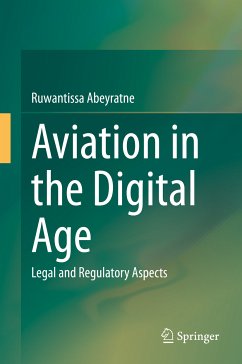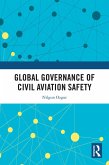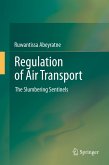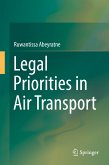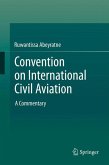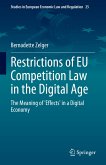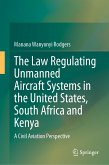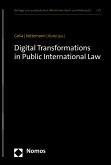All of the topics discussed in this book - from sovereignty to cybercrime, and from drones to the identification of passengers & privacy - are profoundly affected by algorithms; so are air traffic services and aeronautical communications. All of these aviation-related aspects are addressed in a 75-year-old treaty called the Chicago Convention and its Annexes, which, as this book argues, needs to be reviewed with a focus on its relevance and applicability in connection with Moore's Law, which posits that transistors in computer microchips double in speed, power and performance every two years, while the cost of computers is halved during the same period.
Firstly, in terms of traditional territorial sovereignty, we have arrived at a point where there is a concept of data sovereignty and ownership that raises issues of privacy. Data transmission becomes ambivalent in terms of territorial sovereignty, and the Westphalian model may not be the perfect answer. Whether it be the manufacture of airplanes, the transfer of data on individuals, or the transmission of aeronautical and telecommunications information - all have to be carried out in accordance with the same fundamental principle: duty of care. Against the backdrop of the relevant provisions of the Chicago Convention and its Annexes, the detailed analysis presented here covers key areas such as: megatrends; AI and international law in the digital age; blockchain and aviation; drones; aviation and telecommunications; aviation and the Internet; cybersecurity; and digital identification of passengers & privacy. In turn, the book suggests how we can best manage this transition.
Dieser Download kann aus rechtlichen Gründen nur mit Rechnungsadresse in A, B, BG, CY, CZ, D, DK, EW, E, FIN, F, GR, HR, H, IRL, I, LT, L, LR, M, NL, PL, P, R, S, SLO, SK ausgeliefert werden.
Hinweis: Dieser Artikel kann nur an eine deutsche Lieferadresse ausgeliefert werden.

